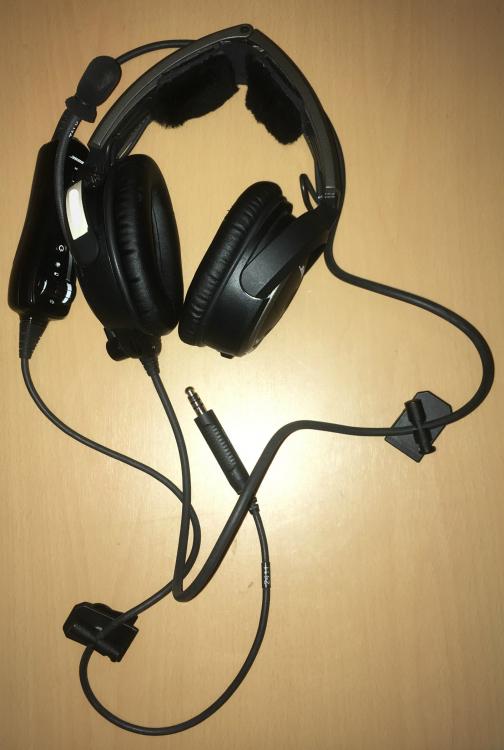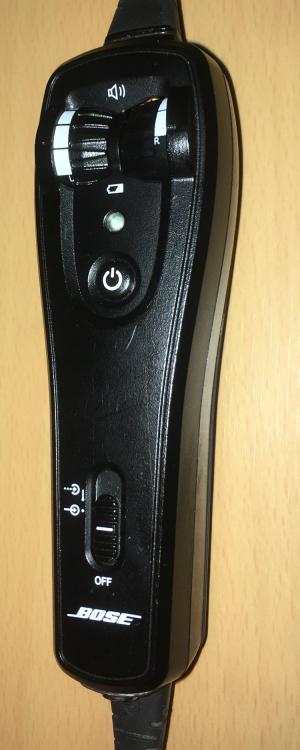-
Posts
1,104 -
Joined
-
Last visited
-
Days Won
17
Content Type
Profiles
Forums
Gallery
Blogs
Downloads
Wiki
Everything posted by nunya
-
That would have added ~$5,376 to my last Active Duty income tax bill. Wow.
-

IRR opportunities....points
nunya replied to Junglejett's topic in Air National Guard / Air Force Reserves
No problem. Don't drag your feet too long, though. In addition to "You can't be a bum in the PIRR," the other thing the AD/CC stressed was that he wanted guys that will give him a few years of service. It's a painful process to access somebody, taking 12+ months, so they say they don't want the 18 year guy looking to bail in 2 years. -

IRR opportunities....points
nunya replied to Junglejett's topic in Air National Guard / Air Force Reserves
I'm doing it right now. I'll tell you what I did, but no guarantee it's the best or most efficient way, or hell, even the right way. Go meet your Force Management NCOIC and buy them lunch. Tell them what you're up to so they can create a folder on you and watch your progress in their 1980s database. If they're good, they can keep everyone else in line and translate common sense into MPF speak. Find the PIRR job you want. Through networking and Googling, I found a guy doing the job already, cold called him and introduced myself, asked about the job, was he happy with it, etc. He gave me his AD CC's and Reserve CC's names. I called both of them, introduced myself, told them I was interested in joining them, etc. Their main concern was making sure I wasn't a dbag, I was willing to do some work for them, and I understood this was mostly unpaid. They said lots of guys call them intending to bum, and that's not even close to possible, at least according to them. They asked for an emailed resume and some screenprints from vMPF. Nothing cosmic. They "hired" me based off a couple phone call "interview." Talk to your local Reserve recruiter. The AD CC of your PIRR unit might have a recruiter he has worked with in the past. If you're going to move (say, to your domicile), they won't talk to you until you're local. The recruiters have no way of knowing where you actually live. Just sayin. Tell them you're Guard, you're not yet scrolled, and you want to transfer to XYZ unit. You'll probably have to hold their hand a little through the process - I've been unimpressed. I think I am the first officer my recruiter has transferred. First things first, GET SCROLLED. It takes months. Make sure your recruiter starts the process yesterday so it's ready when you are. Make sure you can send encrypted emails to your recruiter. The new Guard mail.mil and the Reserve us.af.mil servers don't pay nice together. You might have to get his digital ID via some voodoo magic. I think this is how I did it. https://support.office.com/en-us/article/Get-a-digital-ID-0eaa0ab9-b8a2-4a7e-828b-9bded6370b7b Start your 1288. Your recruiter will tell you what to put in each block. Route that through your Guard WG/CC, TAG, etc. Write a conditional separation MFR to your Wing CC to accompany your 1288. My SQ/CC had one on his computer, so he just changed the name, signed it, and sent it over to the Guard MPF. Wait. The 1288 will come back from your JFHQ/TAG and your Wing MPF should send this to the recruiter. He'll send everything to the RIO. Wait some more. Eventually the RIO responsible for your area will contact you either directly or through your recruiter. They'll want some ARMS stuff. They make sure your app is complete before it goes to ARPC. Recommend you talk to your RIO person (mine is an O-5) directly at least once to establish some kind of rapport. They can be pretty helpful and they can fix a lot of the Recruiter issues. Wait longer. Eventually you'll get a swear-in date, which will establish your separation date. You'll swear in to your new Reserve unit and your Guard Wing will create a separation order effective 1 day prior. Outprocess and inprocess like you have 69 times before and off you go. Good luck. It's been a school of hard knocks. Nobody really knows what they're doing. You're obviously the first guy in 30 years to do this. I hope your desired transfer date is on a distant horizon. -
-
I'm moving to a non-flying gig for good, so I'm selling my (purchased with my own money) Bose A20 headset. Single-plug, military 5-ohm mic cord. Includes case and aux audio cord. Non-bluetooth. $700 shipped. If you're also interested in a civilian high-impedance mic/cord, let me know and we can probably workout a deal to include that, too. edit: pic hosting didn't work. pics below.
-
DoD simply can't keep up. A couple airlines just approved raises bigger than the debated ACP bonuses. Without having to sign a contract. The only hope for AF pilot retention is another recession.
-

Visiting unit on drill weekend
nunya replied to 175driver's topic in Air National Guard / Air Force Reserves
Just show up at 7. Everyone will probably be in a roll call of some sort at 7, so hang out in the bar/common area/Heritage Room/lobby until someone looks at you or says, "Who the hell are you?" Then do your thing. -
Page 38 here: Worthless Securities In Spanglish: https://www.bankrate.com/finance/taxes/writing-off-a-worthless-stock.aspx
- 1,204 replies
-
- sdp
- weekly trading
- (and 8 more)
-
I see only a single wheel weight of 12.5K in the FAA AFD. So unless the ASRR lists a 2S weight, a C-130 is probably out anyway.
-
I forgot how painful the Air Force can make flying. We have airplanes. They have an airport. Go do that pilot shit.
-
90' wide without a waiver, I think.
-
C-130, depending on the weight bearing. U-28. M-28. C-12.
-
And I agree 100% with the need for anonymous discussion, debate, and argument. That was the greatness of JQP at first. Unfortunately, recently, there is very little there worth discussing. Just look at the subsequent posts in most of his threads. He's gone the quantity over quality route, with a marked change after the buyout was made public. I wish him luck in his website, but I don't think it deserves its own home on our BODN. HOWEVER... If (1) JQP is paying BODN rent for the traffic count pushed his way, or (2) if the same Ballistol posts that currently live in the JQP subforum will then migrate to other parts of the forum, then please do leave them in his subforum. I can ignore his subforum. It'll be harder if the same posts just move to the General forum.
-
In the meantime, if you're like me and have a bookmark to BODN, you can do this: Click the arrow by My Activity Streams, Create New Stream Under Content Types, Topics, and click the settings. Narrow by Forums, choose the forums you want to see in your New Content window. Maybe you choose to not click Military Spouses. Or JQP. Choose the other settings to display your forum feed how you like. Oldest First, Newest First, First Unread, etc. You can bookmark that stream so it's your new BODN homepage.
-
I'd like to present a motion to remove the JQPublic Forum from BODN. I think JQP started out with an excellent mission - an insider exposing the many faults of our great service. However, I think it's very quickly morphed into a for-profit enterprise, with a diluted mission, and a very low signal to noise ratio. And now a pop up to ask for money. Exhibit A: Nothing more than a PA press release Exhibit B: Shameless paid advertising Exhibit C: More shit not worth reading Can I get a second?
-
Go to depositaccounts.com and find the best 36 month CD rates. Edit: Ally, Barclays, and Synchrony look competitive and they're name brands. I'd probably go there. If you really want to geek out, look at the 5 year CDs and see if it's worth the early withdrawal penalty for the higher rate. https://www.depositaccounts.com/blog/2013/01/comparison-of-longterm-cd-rates-after-early-withdrawal-penalties-january-2013.html
- 1,204 replies
-
- 1
-

-
- sdp
- weekly trading
- (and 8 more)
-
Why don't you ask them? Get your on your CC's schedule and talk to him. "Hey boss, now that I'm going to part time status, what do you expect from me? Do you have days and orders to hand out? Should I brush up on that HD resume?" Sometimes, it really is that simple, especially in the ARC. No reason to hide your agenda like an Active guy has to.
- 1 reply
-
- 2
-

-
Yep, and it effectively sets the rent for every landlord in the area.
-
Ah youngens. For now, Urban Dictionary has the answers you seek. https://www.urbandictionary.com/define.php?term=so to speak https://www.urbandictionary.com/define.php?term=pull the trigger I'll let you figure out which definitions apply.
-
Without comparing actual standards, my gut says they're not even close. Lots of airline dudes would never pass an AF FC1, especially when you consider the number of AMEs around airline hubs that specialize in keeping guys flying.
-
Happy to help. I might have misunderstood one thing though. LR gave non-a's that included on the form "you must stay at Roach Motel." That created a fight when finance didn't understand that wasn't a valid directive. I thought that's what you got. Was yours just a regular non-a and then only verbally he was telling you to stay somewhere? If that's the case, then even easier! Either way, good luck.
-
Your fight is not with lodging. It's with whoever is paying your vouchers. LR used to do the same thing. They'd not give you an on-base room, but give you a "contract lodging" letter to the Motel 6 in Jacksonville. However, it's not "contract lodging" if you pay for it with your GTC, so he doesn't understand the letter of the law first of all. Read through the attachment for the actual letter of the law. So here's what you do. Tell him thanks for his help, get his name, number, and the date and time you called. If he books you rooms, tell him thank you, walk out of his office, and have your copilot call the hotel directly and cancel all the rooms. Go stay at the hotel of your choice, while of course staying under the max lodging allowance. Do your mission, go home, and file your voucher. Where it asks for the non-a, provide the name, number, and the date and time you called and he said there were no rooms. Reference JTR Chapter 2, Part, H, Paragraph 2570(A)(2) and Paragraph 2570(C). The caveat to all of this is the new Integrated Lodging Program. If wherever you're going is in that, you have to involve CTO and it gets way more painful unless your AO will let you slide without it for mission accomplishment. And finally, caveat emptor. I've done what I spelled out above and it worked as I've said. But you're dealing with different people, different offices, and different bosses. Message_-_Lodging_Reimbursement_Uniformed_Members_-_221800Z_DEC_06.pdf
-
Don't know a thing about the man. Not sure what he's done to draw your ire. He's chosen to play the veteran card to help his campaign. Probably a solid choice in small town America. The lapel wings are goofy, but it seems like sour grapes to attack him for them. A veteran in the Senate (even state level) isn't a bad thing.
-
Right now, in a cubicle in Atlanta, Dallas, and Chicago, some bean counter just said, "More input, hmm... 10 minus 1, carry the 2, divide by 3... so you'll be trained and ready to interview in 8.69 years? Perfect."
-

IMA Jobs.. anybody have info
nunya replied to guardguy's topic in Air National Guard / Air Force Reserves
Awesome JS. Thanks. I had been talking to TACC IMAers and they were all on long term MPA (?) days, but now I realize they're different. In so many ways.



